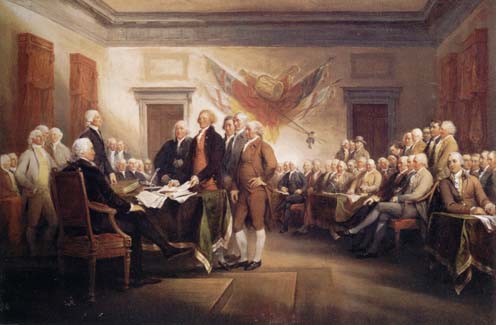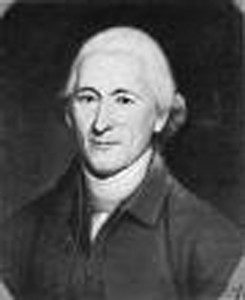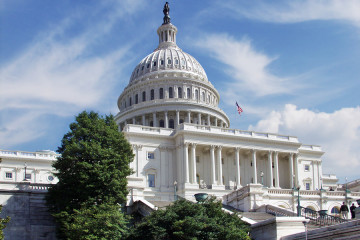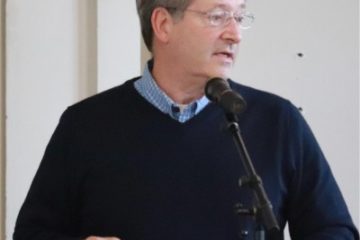Those Who Stood Up and Signed: Part 9

I still remember how our Social Studies in high school drilled into our minds how the signers of the Declaration of Independence were risking their lives signing that document. That they were, yet they were not going to allow themselves to be bullied to by any music celebrity, actor, anyone who considered themselves “royalty”, or anyone regardless of their religious beliefs, sexual preferences, country of origin or gender.
Much like their world, in today’s world, standing up for a certain political view can get you seriously injured or killed. Neither side has a monopoly on peace or love. If you dare defy an anti-Trump protester one can get seriously hurt, injured, tortured on Facebook, or killed. The events in Charlotte, NC have shown us that that evil organization, the KKK is still active too.
I want us to better understand these 56 men who were willing to risk everything for their country. So, in the following weeks, I am going to tell you about them, in alphabetical order mostly. I am not sure how many weeks it is going to take. I guess it will be based on how much I can actually find out about them as individuals.
Most of the biographical information will be taken from The Society of the Descendants of the Signers of the Declaration of Independence which gives extensive bios of each of the signers. Here, I shall highlight some of the parts of their lives that showed their character and spirit.
Arthur Middleton (06/26/1742-1782) was one of the signers by accident. His father, Henry Middleton was a very successful South Carolinian landowner/farmer/trader who also became involved in politics. He was a staunch colonies’ rights advocate. Arthur, his son, spent most of his formative years in London studying Greek and Roman literature, architecture, music, and painting. He also studied law. When Arthur returned from Europe at 22, he somehow returned more radically opposed to British rule than he father was and joined the local militia. Henry Middleton was appointed to the Continental Congress and he was not. However, Henry fell ill and was not able to attend. He sent his son instead. After the signing Arthur continued to fight with the local militia but passed away 11 years later, at the young age of 44.
 Lewis Morris (04/08/1726-01/22/1798) was a New Yorker who became disenchanted with Britain due to their constant wars with France. He saw time and time again their hypocrisy and selfishness and unwillingness to negotiate and became very pro-independence. This happened despite living among pro-British neighbors. He became an assistant to George Washington. He fought against the British as they burned and pillaged and destroyed much of New York state with the Westchester militia. He also served in many other capacities for the state of New York and the country. His first love was his estate, called Morrisania.
Lewis Morris (04/08/1726-01/22/1798) was a New Yorker who became disenchanted with Britain due to their constant wars with France. He saw time and time again their hypocrisy and selfishness and unwillingness to negotiate and became very pro-independence. This happened despite living among pro-British neighbors. He became an assistant to George Washington. He fought against the British as they burned and pillaged and destroyed much of New York state with the Westchester militia. He also served in many other capacities for the state of New York and the country. His first love was his estate, called Morrisania.
John Morton (1725-04/01/1777) was a Pennsylvanian who died less than a year after signing the Declaration of Independence of tuberculosis. He was highly involved in his church from childhood, up until he died. He was a lawyer and held many local political positions for 17 years. Then he became involved with the Continental Congress.
“The delegation to the Second Continental Congress, with Robert Morris and John Dickenson, absenting themselves and with Willing and Humphreys voting, “nay” and with Franklin and James Wilson voting, “aye”, it fell upon John Morton to cast the deciding vote for independence and he did so on July 4, 1776.”
He and his wife had 9 children and in 2007, a special plaque was placed on his grave by the Descendents of the Signers of the Declaration of Independence and several of his descendants were in attendance.
Romans 12:2 Do not be conformed to this world, but be transformed by the renewal of your mind, that by testing you may discern what is the will of God, what is good and acceptable and perfect.
————————————————————W.






No Comment